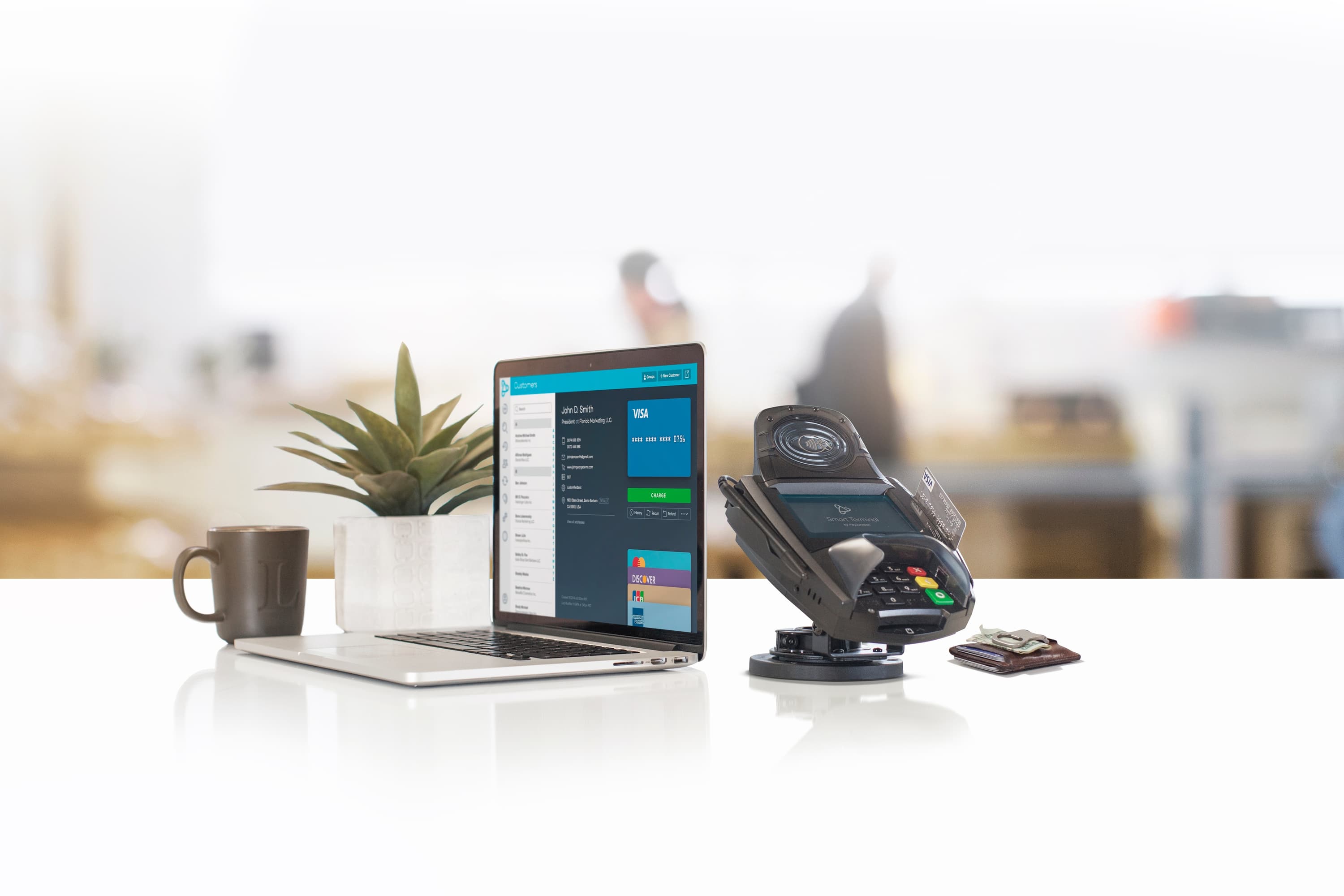
ezyVet currently offers all US practices a payment solution integration with PayJunction, and while ezyVet can assist you in protecting your practice, it's always good to stay in the know about your payment solution. Who better to explain this than PayJunction themselves!
Before we can define what an EIRF is, it helps to understand how interchange works. The card brands — Visa, MasterCard, Discover and Amex — determine the wholesale cost of every credit card your practice accepts. This is referred to as interchange, and every credit card has a specific rate that reflects the risk and reward levels of the transaction method and card type.
For instance, a swiped debit card carries a low interchange rate because there is low risk involved. In contrast, a card-not-present or rewards credit card will carry a higher interchange rate due to the higher risk and reward, respectively. The card brands set these prices and adjust them bi-annually.
You can’t do much about the rewards level of the cards your practice accepts, but you can do your part to mitigate risk. Being mindful during checkout can prevent Electronic Interchange Reimbursement Fees (EIRFs) and save you money on card-not present transactions. Let’s dive into how you can do just that.
The Increased Cost of EIRFs
An EIRF, or downgrade, occurs when a transaction falls into a higher interchange rate. This happens when your practice doesn’t do its due diligence to accept payments in a prescribed way. There are seven common reasons that downgrades occur:
- Address Verification System (AVS) mismatch of the customer’s address and ZIP code
- AVS not run on keyed-in transactions
- Batches not settled within 48 hours of authorization
- Tax not entered separately from the transaction total
- Tips not entered separately from the transaction total
- Discrepancies in settled transaction and original totals
- Out-of-date terminal software
It can be easy to overlook these factors at your practice, especially on phone orders as these may represent just a fraction of your total sales. AVS is a recommended fraud-prevention measure for all card-not-present transactions. It verifies that the customer knows the billing address of the card being used for the purchase. Using AVS costs $0.01 per transaction, but can lower your card-not-present rates by up to 30 percent!
Here’s a real-life example:
An AVS-verified Visa CPS transaction carries an interchange rate of 1.80% + $0.10. The same card without AVS captured costs 2.30% + $0.10. While it’s an additional step, the simple act of asking for the customer’s address and ZIP can significantly lower your card-not-present fees.
Protecting Your Veterinary Practice
At the end of the day, EIRFs can be thought of as fines for improper card acceptance. By doing your part to adhere to the card brand guidelines and keep an eye on updates, you can both lower your rates and prevent fraud at your practice. After all, if you’re not obtaining a signature for your phone transactions, you’ll have no evidence in the event of a chargeback dispute. Ensuring your customers are legitimate can only benefit your practice.
Beyond AVS, you can also make it a practice to capture the Card Verification Value (CVV). This is the three-digit number on the back of Visa, MasterCard and Discover cards or the four-digit number on the front of Amex cards. CVV ensures that the customer has physical possession of the card, although obtaining CVV does not impact your rates.
We recommend instating these fraud-prevention techniques as a part of your card-not-present checkout process. You’ll tangibly reap the rewards with cost savings and potentially prevent fraud losses as well.
About the Author
As the marketing manager at PayJunction, Christina Lavingia delights in crafting content that informs and empowers businesses when it comes to merchant services. PayJunction is a PCI Level 1 merchant service provider and payment gateway that offers paperless payment processing, a cloud-controlled terminal and remote signature capture, among other green tech innovations.
For more information on the PayJunction integration and for ezyVet preferential rates, click here!